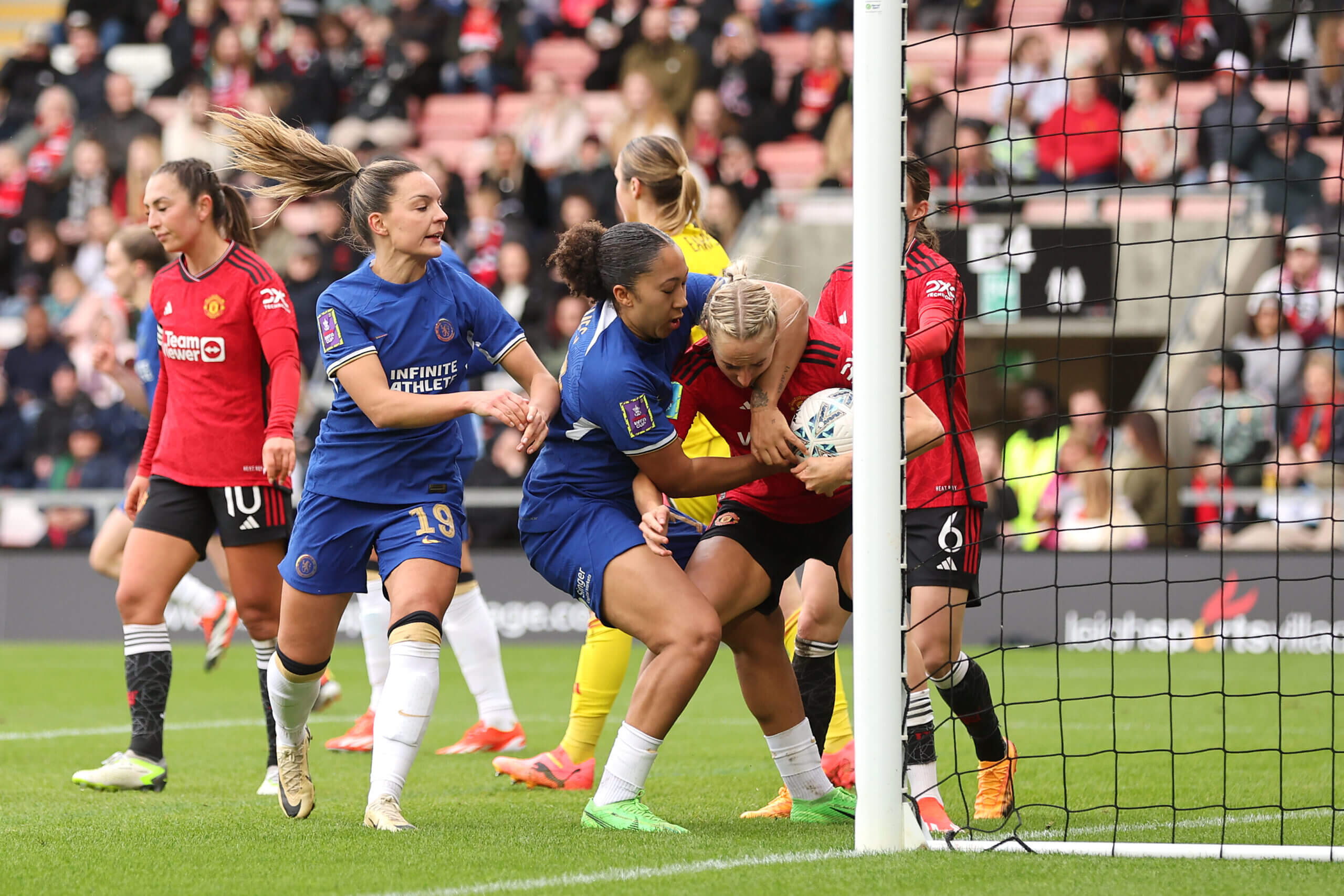I thought of 19-year-old Lauren James this week, and the national newspaper column she wrote days after she had received racist abuse on social media for the first time. I thought of the wider context, and of how few interviews she had given in her career before then. None in her first two years as a professional, given how protective her former club Manchester United were of their prodigious but young — James was still school-aged when she signed for them — talent. I thought of how James, who scored the first Manchester United Women goals in the Championship, in the FA Cup, in the Women’s Super League (WSL) and at Old Trafford, kept such a low profile in those early days compared to sporting prodigies of previous generations. I remember little to no advertising campaigns or magazine shoots.
Then her first public utterance was in response to racist abuse. “I didn’t plan to speak out about racism at this early stage in my career,” she wrote, “[…] but when it happens to you it is different. Honestly, at first I didn’t know how to deal with it.”
That piece was published in 2021. James’ debut World Cup two years later was marred by further abuse after her stamp on Nigeria’s Michelle Alozie, which led to her being sent off and banned for two matches. In December that year, James’ club Chelsea issued a statement condemning racial abuse directed at James after she appeared to stamp on Arsenal’s Lia Walti in a WSL game. Her manager at Chelsea, Emma Hayes, described James as “not in a good place”. Both Alozie and Walti begged their social media followers to stop.
Too late, already, to stop racism shadowing James’ career beginnings. No other female player of this generation has had to endure a level of abuse so consistent and so vicious. So much to carry at 22, but James wrote in that article in The Telegraph that by 19 she had long learned black women had it differently in all areas of life.
GO DEEPER
This is Lauren James, England’s golden girl – the world’s best player in waiting
That point was proved again when, on Sunday, Millie Turner posted a photo of James after United’s 2-1 FA Cup win over Chelsea, the image showing the pair’s tussle for the ball that depicted James holding Turner in what could be perceived as being a headlock. As Turner held onto the ball, both players were subsequently booked. What followed in the comments, in the context of James’ young career, was depressingly predictable.
KAMMMMMOOONNNNNN pic.twitter.com/C3f8LHRJAs
— Millie Turner (@MillieTurner_) April 14, 2024
At the last Women’s World Cup, the intersection between football, society and inequality was pronounced from the protests on the eve of the tournament to the kiss at the final. Invariably, James, willingly or otherwise, in a divided England, in a team whose senior women’s squads have featured few black players in recent years, as the country’s most exciting female footballer for generations, will remain at the forefront of that conversation, her treatment a marker for how far there is to go. That comes at a huge personal cost, and one that becomes heavier to carry with each post.
(Top photo: Chelsea FC via Getty Images)

